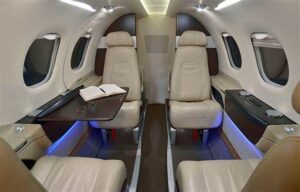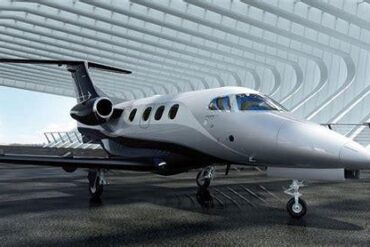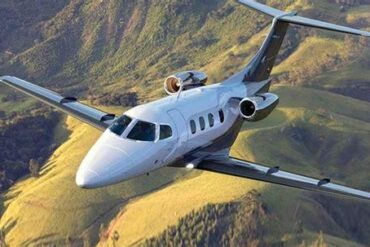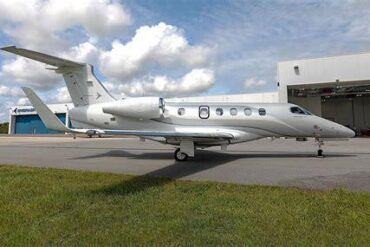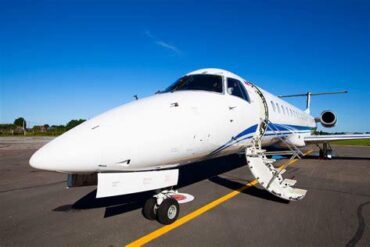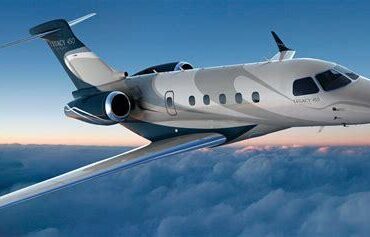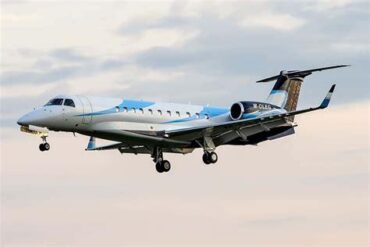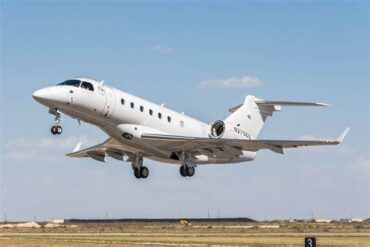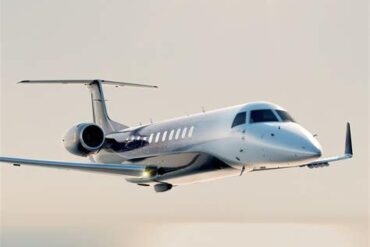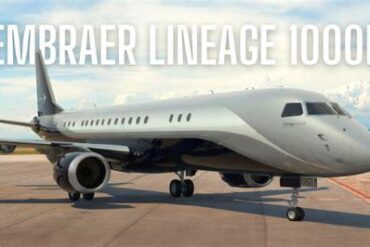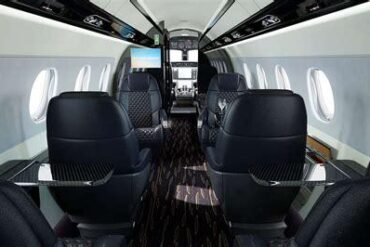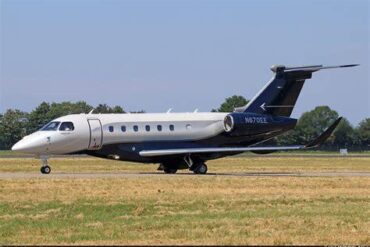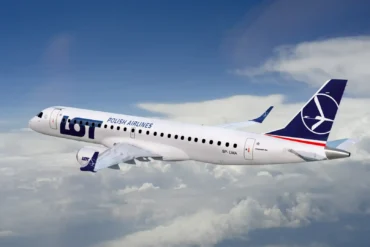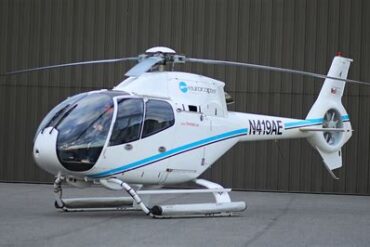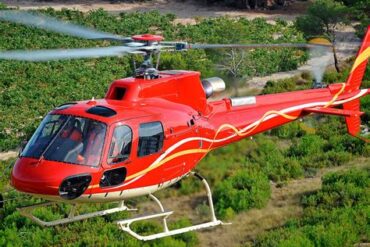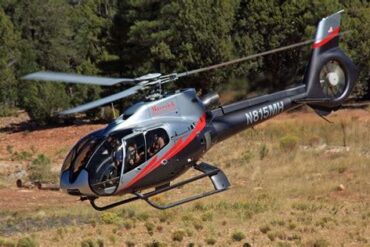The Embraer Phenom 100EV stands as a testament to modern aviation engineering, combining luxury, efficiency, and cutting-edge technology. As we delve into the intricacies of its price and operating costs, it becomes essential to understand why this aircraft has garnered significant attention among private jet enthusiasts and business travelers alike.
Overview of the Embraer Phenom 100EV
The Phenom 100EV is an upgraded version of the original Phenom 100, featuring enhancements that elevate its performance and passenger experience. With a max range of approximately 1,178 nautical miles and the ability to cruise at speeds of up to 390 knots, the Phenom 100EV excels in both short and mid-range travel. The aircraft accommodates up to 6 passengers, ensuring a comfortable journey with ample space.
Key Features of the Phenom 100EV
-
Advanced Avionics: The Phenom 100EV is equipped with the Prodigy Touch flight deck, which provides a user-friendly interface and enhances situational awareness for pilots.
-
Spacious Cabin: The cabin boasts a height of 5 feet 4 inches and a width of 5 feet 1 inch, offering a spacious environment for travelers. Additionally, large windows allow natural light to flood the interior, enhancing the overall ambiance.
-
State-of-the-art Amenities: Passengers can enjoy features such as a refreshment center, customizable lighting, and high-speed internet connectivity, ensuring a luxurious travel experience.
Price of the Embraer Phenom 100EV
The purchase price of the Embraer Phenom 100EV typically ranges from $4.5 million to $5 million. This figure can fluctuate based on factors such as additional customizations, market conditions, and geographic location. Buyers often consider the total cost of ownership, which includes not only the acquisition price but also ongoing expenses.
Factors Influencing the Purchase Price
-
Customization Options: Clients can personalize their aircraft with various upgrades, including premium interior finishes, advanced entertainment systems, and enhanced avionics packages. Each of these choices can significantly impact the final price.
-
Market Demand: The general demand for light jets can influence pricing. A surge in interest may elevate prices, while a downturn could result in more competitive offers.
-
Geographical Location: Import duties, taxes, and regional market dynamics can also affect the base price of the Phenom 100EV.
Operating Costs of the Embraer Phenom 100EV
Understanding the operating costs associated with the Phenom 100EV is crucial for potential owners and operators. These costs encompass various components, including fuel, maintenance, insurance, and crew salaries. Below, we dissect each aspect to provide a comprehensive view.
1. Fuel Costs
Fuel expenses are one of the most significant ongoing costs for any aircraft. The Embraer Phenom 100EV has a fuel consumption rate of approximately 65 gallons per hour. Given the average fuel price of $5.00 per gallon, operators can expect to spend around $325 per hour on fuel alone. This figure can vary based on fuel prices and operational efficiency.
2. Maintenance Costs
Maintenance is a critical component of operating costs. Regular inspections, repairs, and parts replacement contribute to overall expenses. For the Phenom 100EV, annual maintenance costs can average between $60,000 and $100,000. This estimate covers routine maintenance, engine overhauls, and necessary inspections mandated by aviation regulations.
3. Insurance Costs
Insurance is another essential consideration for aircraft owners. The cost of insuring a Phenom 100EV can range from $15,000 to $30,000 per year, depending on various factors, including the pilot’s experience, operational history, and coverage limits. It’s advisable for owners to consult with aviation insurance specialists to ensure they secure adequate coverage.
4. Crew Salaries
For those who opt for a full-time crew, salaries must be factored into the operating costs. A typical pilot salary for a Phenom 100EV ranges from $70,000 to $120,000 annually, depending on experience and qualifications. If a second pilot is required, this figure can increase significantly. Additionally, training costs for crew members should be considered, ensuring that they remain compliant with regulatory requirements.
5. Hangar and Parking Fees
Hangaring the aircraft at a private facility or airport can incur substantial fees. Depending on the location, these costs can vary widely. On average, hangar fees for a Phenom 100EV can range from $500 to $2,000 per month. Owners should also consider transient parking fees when traveling to different airports.
Total Estimated Operating Costs
Combining the various components, the total operating costs for the Embraer Phenom 100EV can be estimated as follows:
-
Fuel: $325/hour
-
Maintenance: $60,000 – $100,000/year
-
Insurance: $15,000 – $30,000/year
-
Crew Salaries: $70,000 – $120,000/year (per pilot)
-
Hangar Fees: $500 – $2,000/month
Considering an average flight time of 100 hours per year, the total cost could range between $400,000 and $600,000 annually. This estimate provides potential buyers with a realistic overview of what to expect in terms of financial commitment.
Comparative Analysis with Competitors
When evaluating the Phenom 100EV, it’s essential to compare it with similar aircraft in its category, such as the Cessna Citation M2 and the HondaJet. Each aircraft offers unique advantages and disadvantages regarding price, operating costs, and performance.
Cessna Citation M2
The Cessna Citation M2 is another popular choice in the light jet segment, with a purchase price starting around $4.5 million. Its operating costs are relatively comparable to the Phenom 100EV, with slightly lower fuel consumption but higher maintenance costs due to its more complex systems.
HondaJet
The HondaJet, known for its innovative design and efficiency, typically retails for around $5.3 million. While it offers lower operating costs thanks to its fuel-efficient engines, it has a slightly reduced cabin space compared to the Phenom 100EV, which may impact passenger comfort.
Conclusion
In summary, the Embraer Phenom 100EV presents a compelling option for those seeking a balance of luxury, performance, and operational efficiency. With a purchase price ranging from $4.5 million to $5 million and estimated annual operating costs between $400,000 and $600,000, it positions itself favorably within the competitive light jet market. By understanding the various financial aspects associated with ownership, prospective buyers can make informed decisions that align with their aviation needs and budgetary considerations.
